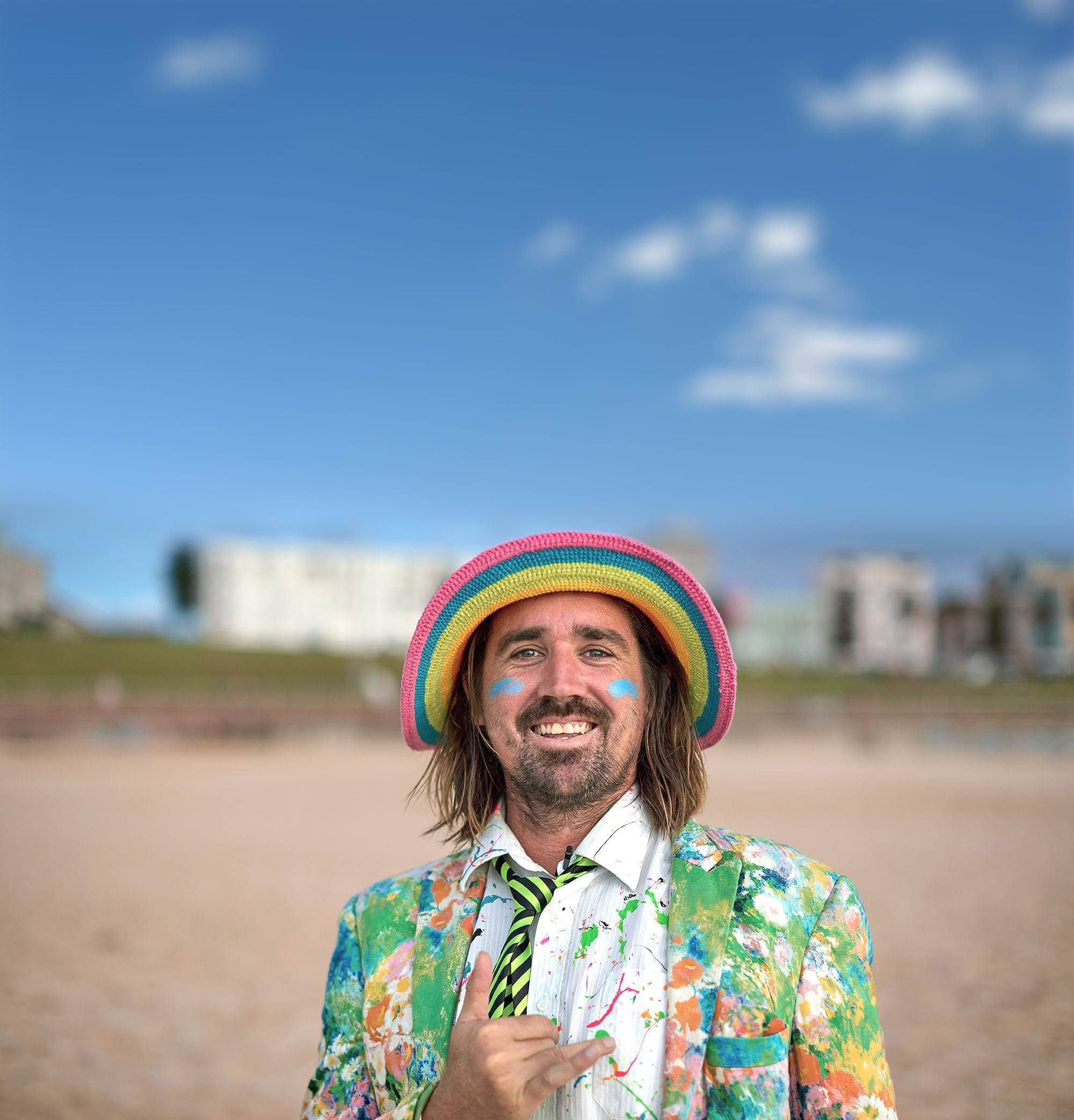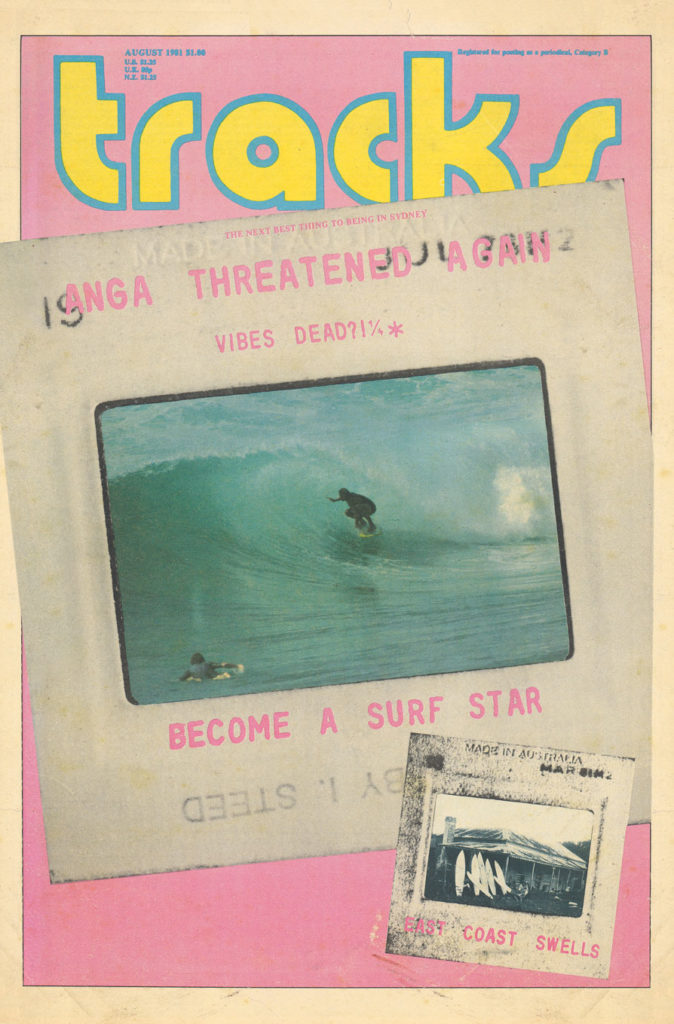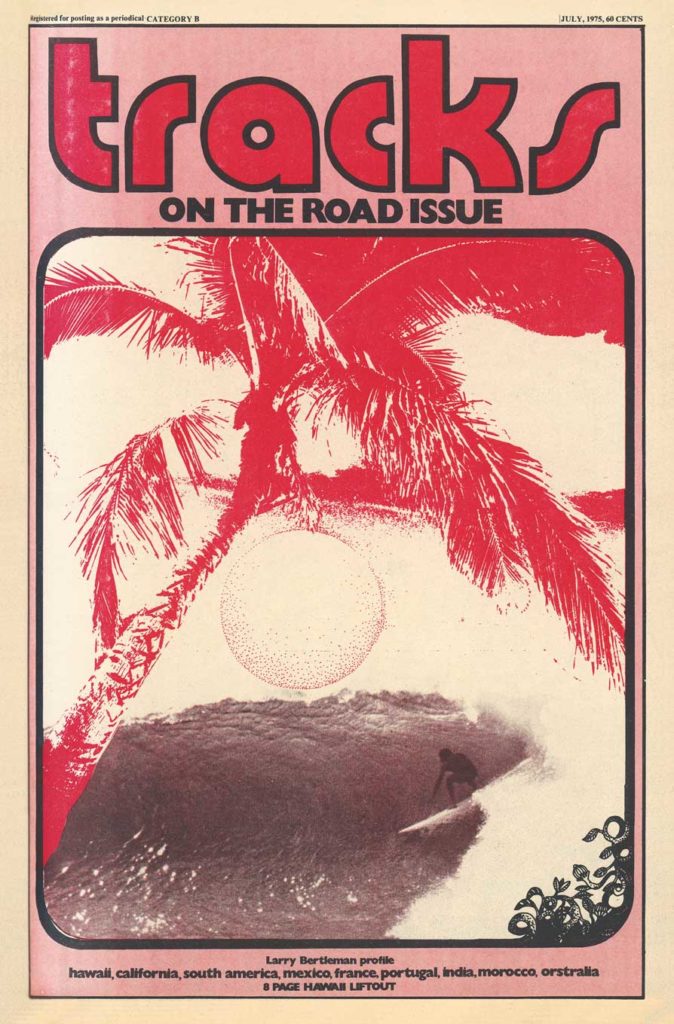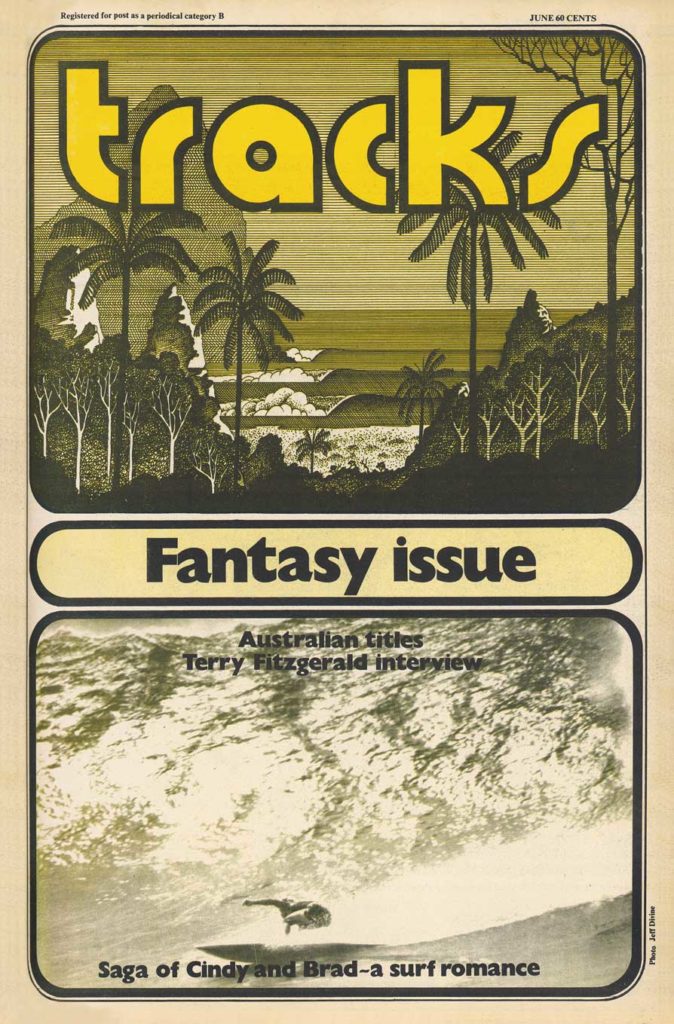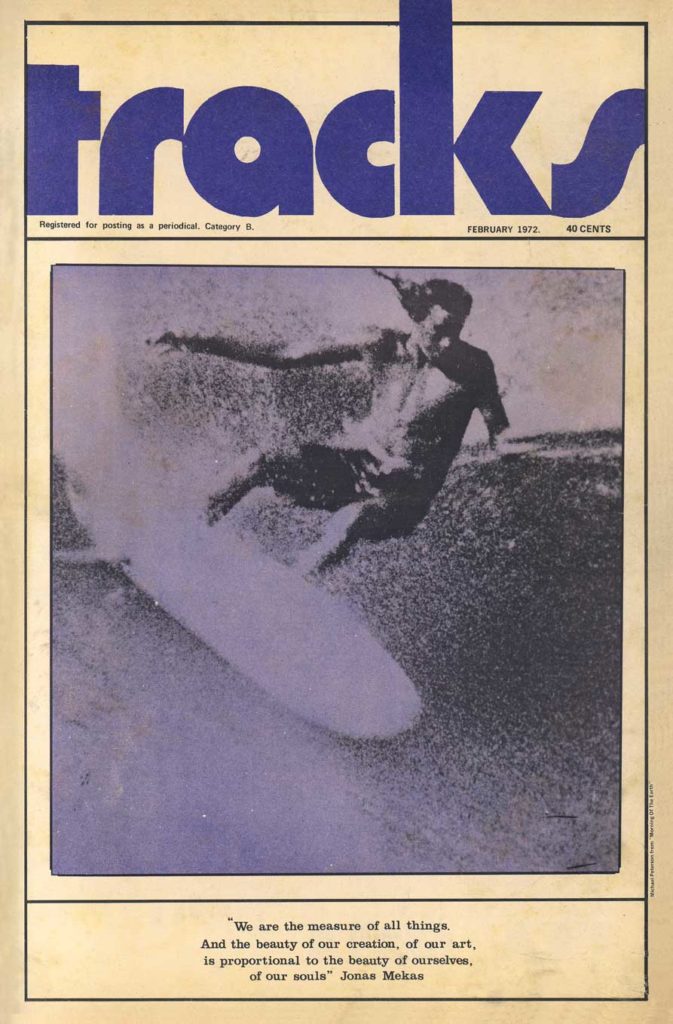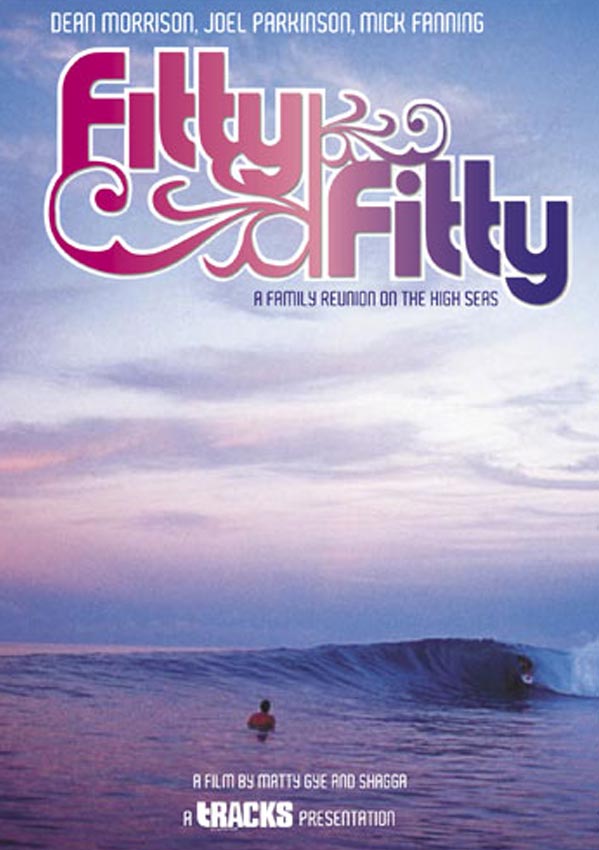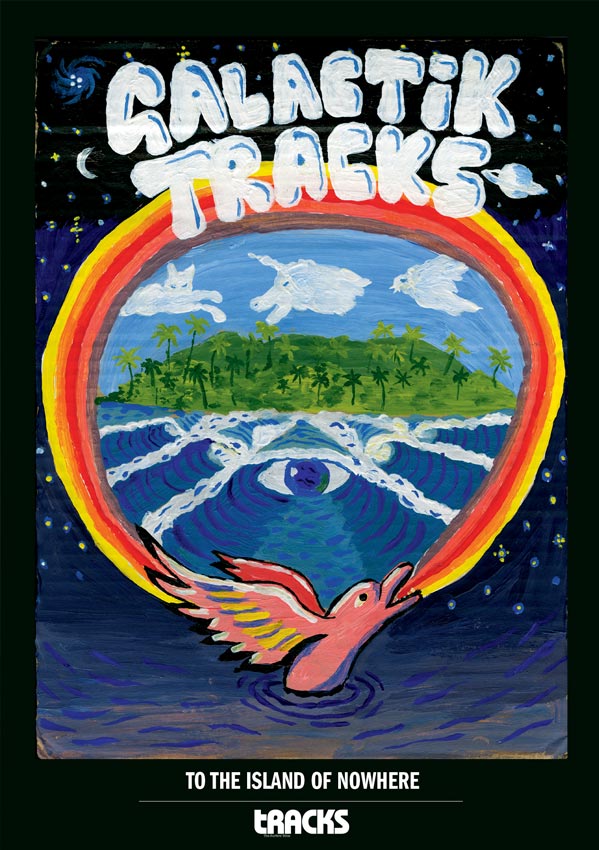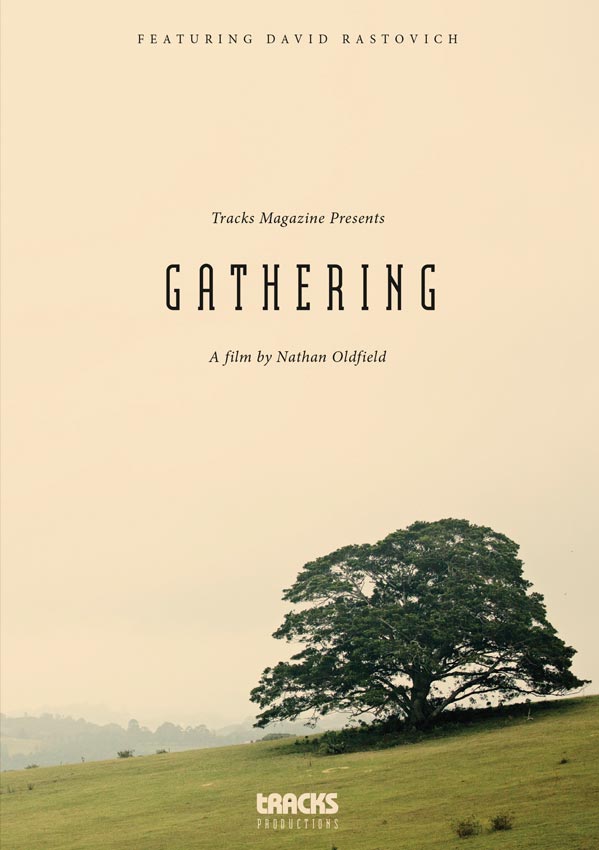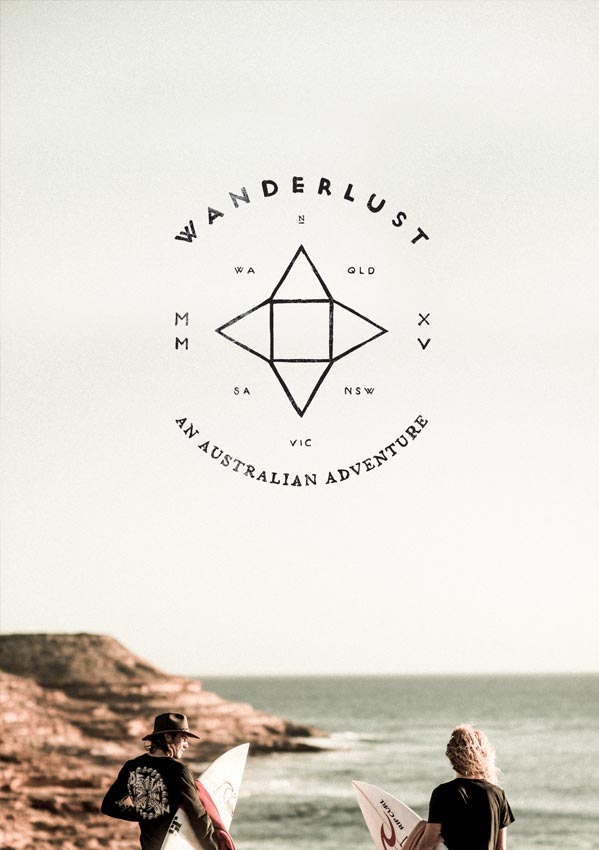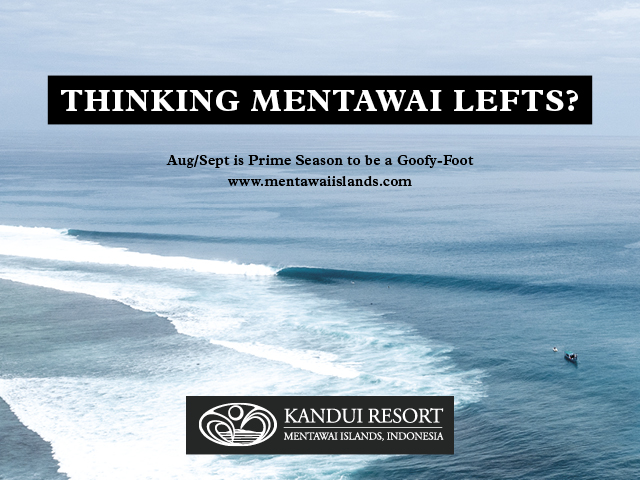Grant Trebilco thought he was just a regular human until a manic high triggered a week-long episode of volatile behaviour where he quit his treasured job, gate-crashed the semi-final of a major surfing contest and wound up in a psychiatric ward. As Grant learned how to manage his illness, he realised that surfing helped him to maintain an even keel. Inspired by the role catching waves played in his own recovery, Grant started the OneWave organisation to help other people use surfing and community as mechanisms for promoting positive mental health.
Grant’s story (along with that of a war photographer, a farmer and an artist) is now the subject of a new documentary ‘Happy Sad Man’, which is by Genevieve Bailey, is being released in cinemas through October and November. Below Grant talks about his own experience of bipolar, the new film and the work he has done with OneWave to make mental health a subject everyone feels comfortable talking about.
HAPPY SAD MAN – Trailer from Proud Mother Pictures on Vimeo.
Did you surf from a young age?
I started surfing when I about 14. My Dad is a keen surfer, so I grew up surfing with my Dad and my brothers in NZ.
Were there any early signs that you were affected by Bi-Polar? Perhaps in hindsight you can now see the indicators?
I was just known as the happy dude growing up playing rugby and surfing. I had my ups and downs, but I had no idea that I might have bipolar.
I honestly didn’t understand what bipolar was. I didn’t even know my Dad had bipolar until I was diagnosed myself and my Dad is my best mate.
You have told the story a thousand times before but can you outline the incident at Manly that brought your condition to the forefront?
In 2012 I was doing the marketing for a tequila company and we were throwing some parties during the Aus Surf Open. The thing people didn’t people realise is that a few months earlier I had been diagnosed with depression and put on antidepressants. I was feeling the best I had felt in so long, but it turns out I was misdiagnosed with depression and the antidepressants sent me too high and I had my first manic episode (high end of bipolar).
When you hit the manic end of bipolar you have so much energy, everything speeds up and you are on the highest high, but you can lose the reality of everything pretty quick. The thing is you are just having fun and trying to help people, but looking back I did some pretty random shit that week…I walked into my boss’s office dressed as a tequila farmer and quit a job that I loved and told my boss I was going to start a charity called Where the Party At? and follow the surf tour and raise money for Surfaid. Then on the finals day of the comp I really took it too far and I stole a surf club paddleboard off the beach and paddled out around the comp during the semi-final. When I got to the beach I was chased by officials and handcuffed by police and taken to the mental health ward of Manly Hospital. I remember just yelling at the Police “What the fuck, I’m just trying to help people”. That was the most fucked up experience waking up in the mental health ward. I pretty quickly went from the highest high to the lowest low. After two of the hardest weeks of my life in hospital, I was diagnosed with bipolar.
Were you frightened by your own behaviour?
I was honestly having the time of my life when I was manic, but yeah when you wake up a realise all the dumb shit you have done it scares you for sure. The thing is it’s not like you are trying to do anything bad, you’re trying to help people, but you lose reality and that’s what scares me. It’s hard to explain to people what it’s like to experience a manic episode unless you have been through it yourself. It’s kinda like being on a party bus and you think everyone is on there with you and then you wake up in a mental health ward and you realise you were the only on the party bus. That’s the shittest feeling ever because you finally feel like everything is coming together and when you wake up you quickly go from the highest highs to the lowest low.
How long were you placed in psychiatric care for?
I was in the mental health ward for 2 weeks. Worst place ever. They really need to create some more positive spaces for people doing it tough, because it honestly felt like a jail for people facing mental health challenges. So hectic, I honestly thought my life was over.
While placed under the care of doctors did you have to learn a lot about the condition and managing your mood swings? Was learning to take the right medication an important part of that process?
I struggled to find a good doctor when I was in the hospital. It felt like they treated you as an illness not a person. My family would come and visit me every day and hang out and they honestly saved me. I remember when Mum and Dad would come in and the Doctors would say, “Ohh Grant he’s been cutting shapes at night with his headphones on, he must be still manic, so we better give him more meds and he’s definitely not going home in the next few days.” When the reality was I was dancing because I was bored shitless in there and couldn’t go surfing. Music and dancing were my escape in there, but I learned the only way I was going to get out of there was if I chilled out, so I switched dancing for yoga so they didn’t think I was still manic.
They tried me on a bunch of different medications in the hospital, but they weren’t the right ones and they sucked the life out of me. It took me a long time to find a doctor that really understood me once I got out of hospital. She surfs and really gets it and has honestly changed my life. I’m now on 2 different medications that help me find the balance of living with bipolar. I still have ups and downs and bipolar is something I will have to manage all my life, but I have definitely got the stoke back.
The thing is finding a good doctor is kinda like relationships, sometimes you can find the right one straight up, but sometimes it takes a while to lock in a good one. The key thing is everyone is different, so don’t give up until you find the right one for you.
I recall you saying that at some point while you were in the psych ward you were overwhelmed by the feeling that you just had to go surfing?
Yeah 100%. I thought about surfing every day in there. They didn’t let you outside for long enough to go for a surf when I was in hospital, but the day I got out Mum and Dad took me down to Manly to go for a wave and it was the best thing ever being back in the ocean. You can’t beat some saltwater therapy.
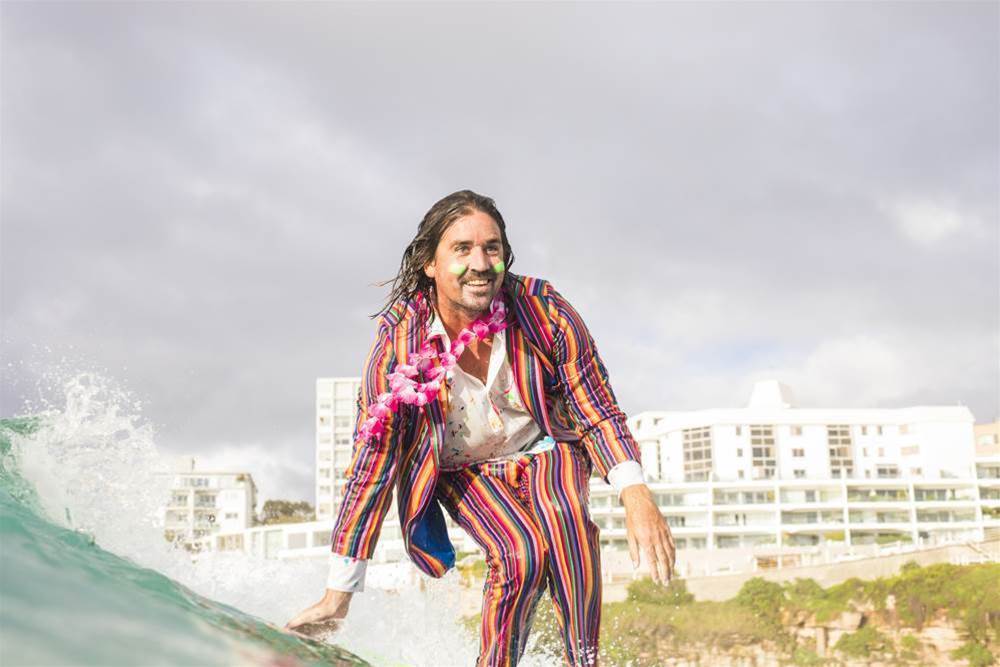
7) As though you had an innate understanding that surfing would be part of your therapy?
I’ve surfed most of my life and surfing has always been the funnest thing ever and the best escape. I just didn’t realise how much it would save me when I hit the lowest low after being diagnosed with bipolar. Riding waves and having a chat with your mates can honestly change your life.
10) Did surfing have an instant impact on your overall sense of well-being?
When I got out of hospital after being diagnosed with bipolar I was suffering from really bad depression and anxiety. I honestly thought my life was over. The one place where I could get away from it all was getting in the ocean and going surfing with my family and my mates. I remember getting this one good wave and I actually started smiling again, like really smiling and finally I didn’t feel numb anymore. That gave me hope that I could get the stoke back. Sometimes one wave is all it takes.
11) Is surfing like a form of medication for you now?
Surfing is a key part of my recipe for managing my mental health for sure. It’s the best escape and funnest thing ever and helped me get my stoke back.
But for me surfing alone is not the cure. The thing is you can’t surf all day and when I wasn’t in the ocean I was struggling big time. That’s when I started sharing my story and realised some of my closest mates were also struggling. I think if you can combine riding waves and having a chat with your mates it can honestly change your life.
I think talking about is the first step and then it’s key to get support from mental health professionals to work out the best recipe for you.
12) Has anyone ever been able to explain, from a medical or scientific perspective, why surfing could help?
Check out this podcast which talks to surf therapy charities around the World about the stoke of surf therapy…
https://www.abc.net.au/radionational/programs/allinthemind/the-stoke-of-surf-therapy/10519034
13) You used your own experience as inspiration to start the One Wave group. Is that because you felt that you could help people who had similar experiences?
The ocean was also the first place I told my friends about having bipolar. I was freaking out because I thought they would think I was crazy, weird but the support and understanding they showed me was unreal and I will never forget it. That was the inspiration behind launching OneWave. I wanted to give more people the chance to ride waves and openly talk about mental health without being judged.
14) What’s the basic philosophy of One Wave?
OneWave is a non-profit surf community raising awareness of mental health through saltwater therapy, surfing, and fluro. We want to give as many people as we can a chance to ride waves and openly talk about mental health without being judged.
We run weekly Fluro Friday surfs at sunrise where we dress in the brightest colours we can find, to make an invisible issue visible and help start more conversations about mental health. Before we paddle out we have an anti-bad vibes circle where we check-in and share real stories about mental health.
We also have a OneWave School Program where we have Fluro Friday’s at schools to raise awareness of mental health.
15) Fluoro Friday is an integral part of the OneWave process.
How did that originate?
I wasn’t sure how to start OneWave, so one Friday morning 6 years ago I decided to dress up in a shirt and tie and go surfing solo at Bondi to try and start some conversations about mental health. Most people thought I had come from an all-nighter and when they asked me why I was dressed up I think the last thing they expected was me saying it was to raise awareness of mental health. I had some real chats in the surf that day with complete strangers, who shared their struggles, which is what it’s all about.
I thought if all it takes is me dressing up in ridiculous outfits and going surfing to start conversations about mental health then I’m doing it every Friday. That was OneWave’s first Fluro Friday and luckily I have been joined by a whole lot of good people who are all just as passionate about raising awareness of mental health and we haven’t missed a weekly Fluro Friday for the last 6 years.
16) Do you think it’s important to have spaces, like the One Wave Group, where people feel safe to open up about their experiences with mental health without feeling like there will be a stigma attached to their problems?
Yeah, I think it’s key to surround yourself with people who let you know that it’s totally ok not to be ok and have your back no matter what. When people come down to Fluro Friday we start off with an anti-bad vibes circle and there is no stigma in that circle. It’s about sharing real stories and checking in an asking “how are you really going?”. When you hear other people’s stories you realise you are not alone and it makes it easier for you to talk about it and reach out for help, because you know you won’t be judged.
17) What made you agree to be part of a movie, which delved into the details of your life?
If you had told me 10 years ago I would be part of a documentary called Happy Sad Man one day, I would have honestly said you were crazy.
Growing up I didn’t understand what mental health was and I just thought it meant being happy 100% of the time, but I’ve learned that’s not possible. I think at the end of the day everyone has a bit of happy-sad in them and I just hope the Happy Sad Man film lets people know they don’t have to face mental health challenges alone.
I feel bloody lucky now to get the chance to share the OneWave story alongside 4 of the best humans going, who all share their own mental health journey.
18) So it’s kind of a two-phase therapy? Surf and share your story?
Yeah 100%. The surfing helps people get their stoke back one wave at a time, but you can’t surf all day and that is why the real conversations about mental health are a key part of the recipe.
20) Can you think of examples where you feel that that group has helped turn someone’s life around?
We have met the most amazing humans in the OneWave community. Some have shared their personal struggles with mental health for the first time. Some have supported their family and friends through the toughest times. Some have sadly lost family and friends. What we all share is a massive passion for helping others, by giving more people the chance to ride waves and openly talk about mental health.
Here is a message we got from one of the OneWave community in NZ, an absolute legend who came over to Australia for OneWave’s birthday and shared her powerful story with 500 people at Bondi Beach…
“I don’t even remember how I heard about you guys, but living in New Zealand, I didn’t have access to the gatherings you guys are holding in Oz. However, with your encouragement, I went and got myself a new brightly coloured wetsuit and ensured that no matter how dreadful the conditions, I got out on the waves at least once a week. I owe my life, and my sanity to a lot of things. Doctors, and treatment teams and specialists. But you guys have helped me understand that surfing is not escaping my troubles, it is another form of therapy, another form of prayer. And surfing has truly given me my life back. Shot for the great work you’re doing raising awareness and lifting stigma cos hell everybody thinks I’m just a whingy insecure teenage girl when they find out I have anorexia and don’t realise its a real illness that isn’t my fault.”
22) The group has been around for a while now. How many chapters of OneWave are there around the world? And if someone wants to get involved or even start their own chapter what’s the best way to go about it?
Fluro Friday’s started at Bondi Beach in 2013 and have now been held at more than 200 beaches across 40 countries, from New Zealand to Norway. We have volunteer OneWave Tribe Leaders, who have created OneWave communities at their local beach and it’s thanks to these legends, that Fluro Friday’s have spread to more beaches around the world.
Everyone is welcome at Fluro Friday’s and you can head to onewaveisallittakes.com find out more and if you can’t find your beach on the Fluro Friday map we would be so stoked for you to start a Fluro Friday at your local beach. It is as easy as grabbing a few mates, dressing in fluro and going surfing and sharing stories to help people free the funk. It can be a weekly/monthly event or even once a year. Email [email protected] to find out more and we will jump on the phone and chat about making it happen.
23) Can we make Mental Health a topic we all freely discuss without fear of being labelled? Can Good Mental Health simply be something we strive for in the same way people strive for physical well-being?
People talking about mental health like we talk about physical health is the dream. The stigma has reduced, but we still have a long way to go because we are still losing 8 people a day to suicide.
I think the key thing is, it starts with talking. If we share our own stories and are completely honest about how we are feeling it opens up the door for our friends to do the same. It lets people know they are not alone and that it’s totally ok not to be ok and ask for help.
Then it’s about helping people find the right professional support, because once you start talking you then need to get help from mental health professionals.
I think if we talk about mental health in a more positive light, rather than it being such a negative thing it will make it easier for people to open up and reach out for help…
We talk about working on our mental game for surfing, so why not work on our mental game for life?
We head to the gym to get our body strong for surfing, so why not head to the mind gym and talk it out with a psychologist?
We head to the doctors to get out body checked up, so why not head to the doctors for a check up from the neck up?
And imagine if we spoke as much about mental health as the man flu.

